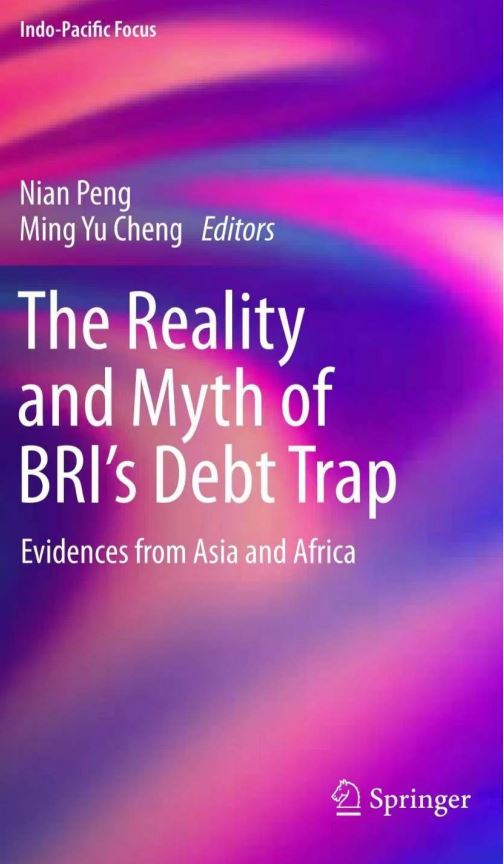RCAS New Book of BRI is Published by Springer Nature!
Time: 2024-04-23 Author: RCAS
RCAS is proud to announce that the new book-The Reality and Myth of BRI's "Debt Trap": Evidences from Asia and Africa is published by Springer Nature in April 2024. Nian Peng, Director of RCAS, and Ming Yu Cheng, nonresident senior fellow of RCAS co-edited this book.

▲The title page of RCAS new book.
This edited book aims to present a well-balanced view on the heated debate about BRI’s “debt trap” controversy within the route states by presenting compelling evidence from Asian and African countries.
It is contributed by the university scholars, think tank experts, and governmental officials from the concerned parties such as China, USA, South/Southeast Asia, and Africa to discuss this new topic from their perspectives.
It not only examines the origins and changes in external debt among the BRI route states before and after the launch of the BRI, but also analyzes the outcomes stemming from BRI projects.
The book covers 12 chapters, in which the first chapter briefly introduces the aims and scope of this book. The following 2 chapters look at Chinese and Indian perspectives on the “debt trap”, respectively. The next 9 chapters examine the debt issue and BRI projects in Southeast Asian, South Asian, and African states, which mainly involve Myanmar, Cambodia, Laos, the Philippines, Malaysia, Indonesia, Bangladesh, Nepal, and Nigeria, and give some useful policy suggestions to reduce the debt burden and promote the socioeconomic development in these countries.
This new book is part of the book series-Indo-Pacific Focus, which is co-edited by Nian Peng and Ghulam Ali, Deputy Director of RCAS, with Springer Nature.
The series aim to conduct in-depth and dynamic studies on the new and emerging issues and the new trends of the contemporary geo-politics of the Indo-Pacific region. It covers the key economic, political, diplomatic, security, social and cultural issues in the Indo-Pacific region, mainly including the BRI, regional integration, multilateral cooperation, physical connectivity, economic corridor, debt issue, resource exploitation, great power rivalry, political development, maritime security, terrorism/counter-terrorism, poverty reduction, ethnic and religious tensions, etc. It also predicts the possible directions of the future of the geo-politics and geo-economy in the Indo-Pacific region by incorporating the most recent developments. It tries to create a main platform for the Asian and African scholars to compete with the West-centered views on the mentioned topics by inviting experts from East Asia, South/Southeast Asia, Middle East and Africa to contribute books/chapters.
The Springer Nature links: https://link.springer.com/book/10.1007/978-981-97-1056-0

